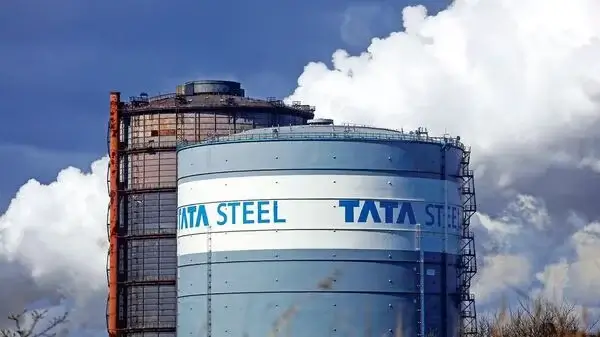A statement released on January 19 by the Indian steel company confirmed a plan that is expected to cut Tata Steel UK's CO2 emissions by five million tonnes a year but will potentially result in the loss of 2,800 jobs in South Wales.
Imported steel semi-finished products
Tata intends to keep the existing hot rolling mill at Port Talbot in operation. It and its processing and steel processing centers will use imported semi-finished steel products from the company's plants in the Netherlands and India, as well as "other selected strategic suppliers", it said.
The UK government announced in December on plans to introduce a carbon border management mechanism (CBAM) by 2027, which would levy tariffs on imported steel based on its embedded emissions.
MEPS international steel market analyst Jonathon Carruthers-Green explained the challenges facing the UK steel industry as it tries to cut emissions.
He said: “This is a difficult time for the steel industry as it must adapt to the new reality of increased demand for low-emission steel. The European Union is currently testing a CBAM that applies a surcharge linked to CO2 emissions. The UK plans to introduce a similar scheme from 2027. This means that over time, steel produced in blast furnaces such as at Port Talbot will become increasingly uncompetitive.
The country produces around 10 million tonnes of scrap steel each year, much of which is currently exported . This means that there must be enough scrap to supply a new EAF. This approach has its drawbacks; the limitations of this technology mean we will be able to produce fewer key grades of steel in the UK, ultimately increasing our dependence on imports. There really are no easy solutions."
UK Prime Minister Rishi Sunak insisted this week that the UK remains "absolutely committed to making steel in the UK" as the country strives to achieve net-carbon status by 2050.
The UK Government has agreed a £500 million package to support the £1.7 billion investment required to deliver Tata's planned transition to low-emission EAF steel production in Port Talbot.
Sunak said the alternative to the plan would be to close "the entire plant", which would result in the loss of around 8,000 jobs.
Before deciding on the details of his plan in Port Talbot, Tata held discussions with the UK Steel Committee (the representative body of several trade unions) and its advisers. The committee proposed maintaining one blast furnace to maintain steel production while the two new EAFs were being developed.
However, Tata concluded that it was not economically feasible to continue blast furnace production while building the new EAF. He added that building an EAF in an existing steelworks would be risky and create a "sub-optimal plant layout".
Port Talbot's two blast furnaces and coke ovens will now be phased out and the first blast furnace will close around mid-2024. The remaining heavy assets will be wound down in the second half of 2024.
Tata's restructuring proposal also includes the planned closure of the Continuous Annealing Line (CAPL) in March 2025.
EPR plan 'correct'
Today's announcement indicated that Tata will seek to maximize voluntary layoffs. The company plans to spend more than £130 million on a support package for affected employees. The UK and Welsh governments have pledged an additional £100 million.
Tata Steel CEO and Managing Director TV Narendran said the steel company recognizes its plans will have a "major impact on stakeholders and communities" but added that the company believes its plan is “the right one.”
“Having invested almost £5 billion in UK businesses since 2007, we must transform at a rapid pace to build a sustainable UK business for the long term " he added.
" Our ambitious plan includes the largest capital investment in UK steel production in over a decade, ensuring long-term




